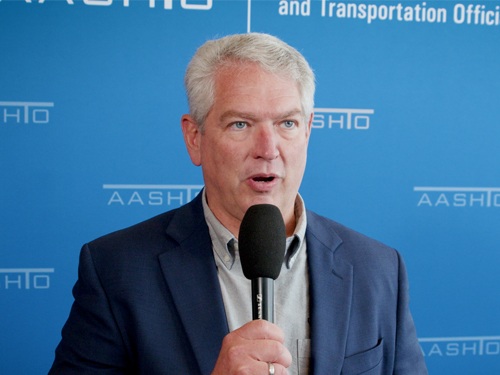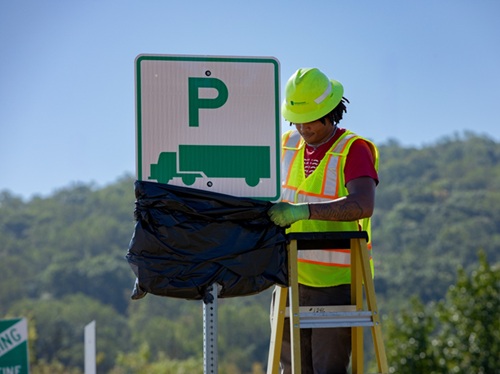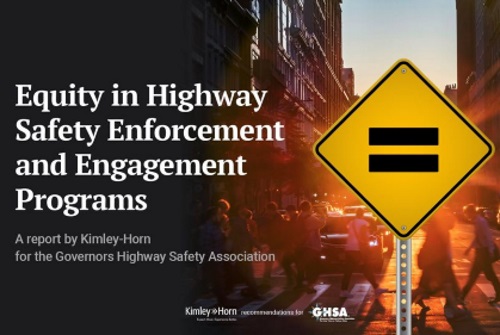The Governors Highway Safety Association issued a set of 10 recommended actions State Highway Safety Offices or SHSOs and other traffic safety groups follow to improve “equitable outcomes” for Black, Indigenous and People of Color or BIPOC communities.
[Above image via GHSA]
Those 10 recommendations – developed by consulting firm Kimley-Horn – seeks to help eliminate racial disparities in traffic safety engagement and enforcement.

“GHSA is committed to taking meaningful steps to eliminate racial disparities in traffic enforcement and to make our nation’s highway safety programs more just and equitable for all road users,” said Jonathan Adkins, GHSA’s executive director, in a statement.
“Our goal is to prevent motor vehicle crashes, injuries and deaths, but that is unobtainable as long as racial disparities exist,” he said. “These recommendations are another step forward in our ongoing journey to ensure traffic safety programs work for everyone.”
The recommendations, contained in a new report dubbed Equity in Highway Safety Enforcement and Engagement Programs, include:
- Promote the collection and analysis of racial data for every traffic stop to understand potential disparities and help allocate funding to improve enforcement effectiveness.
- Support increased funding for racial profiling data collection to allow more states to collect and analyze data to help identify and implement solutions to address disparities.
- Support increased use of automated enforcement to reduce risky driving behaviors while applying them equitably with community engagement.
- Establish a “promising practices” guide for SHSOs that identifies and details opportunities for increasing BIPOC participation in highway safety programs.
- Encourage broader community involvement in the highway safety planning process so diverse communities have a voice in shaping enforcement and other strategies that can help reduce racial inequities.
- Develop a communications toolkit for SHSOs that identifies key strategies for mitigating disparities and reinforces the message that everyone has a role to play in ensuring traffic enforcement and safety programs are equitable.
- Refocus traffic enforcement efforts on traffic safety and prioritize the most dangerous and unlawful driving behaviors, such as speeding and driving under the influence, which put all road users at risk.
- Encourage modernized police recruitment and training standards to achieve more equitable enforcement outcomes and so that law enforcement agency demographics more closely align with their communities.
- Continue to cultivate partnerships with Vision Zero, Road to Zero and Safe System communities to promote a holistic and collaborative approach to highway safety that leverages all available safety tools.
- Support driver-licensing policies that improve equitable outcomes such as ensuring that license sanctions are limited to moving violations and exploring more flexible fee and payment structures for traffic citations, driver license fees and vehicle registration.
GHSA said Kimley-Horn developed those recommendations after a thorough review of national best practices, interviews with SHSO leaders to examine current practices, and conversations with key GHSA safety partners.
Those recommendations are part of an effort by GHSA to place racial equity at the forefront of all traffic safety efforts. For example, in June, GHSA released a study that found that traffic deaths disproportionately affect BIPOC communities and identified steps to eliminate those disparities.
 Nation
Nation
WVDOT Profiled in Latest State DOT 2-Minute Update
October 10, 2025 Nation
Nation

